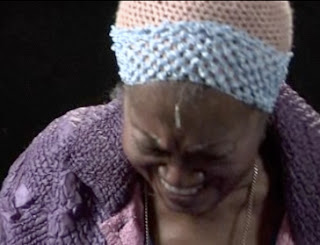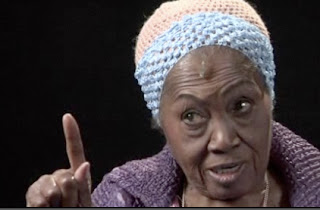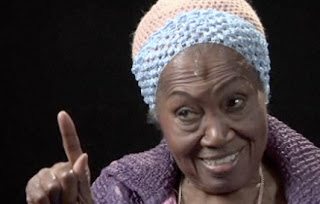Ah, check out this lovely piece about Odetta, catch her discussion of “theft” where she schools her interviewer on inappropriate application of property arguments to musicking in the tradition she is a part of.
Seriously. Watch it first, it’s a lovely 20 minutes, and then I will take you through her amazing smackdown of her interviewer.
http://www.nytimes.com/packages/html/arts/20081203_odetta.html
At 13:48, he asks her about Dylan, about how he “took something deep from” her. She pushes back, says he was “influenced” by her, but that he did his own thing with it.
He than says that Dylan listened to the same songs as her, recordings of sharecroppers, workers and slaves, and “stole” from them. She says, immediately, (at 14:15) “no no no no no”
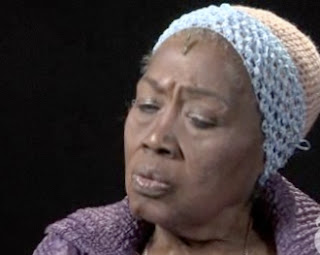 |
| “no no no no no” |
“We call it folk music we don’t call it stealing.” And this look, while she says it.
 |
| “we don’t call it stealing” |
And Odetta says: “well we could but we don’t” and looks back again at him for emphasis.
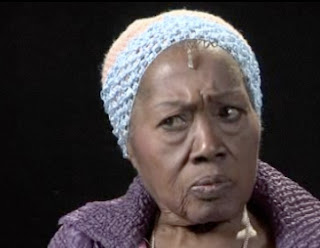 |
| “but we don’t” |
But then, she laughs. I love the long long long laugh she gives after defending Dylan. She connects him to the tradition, but then she gives this drawn-out, deep, rather dark sounding (to me) heh heh heh heh heh heh heh heh heh (24, I counted) at 14:31..
In it, I hear a lot of things going on. But starting with the fact that she begins by looking him in the eye while she laughs:
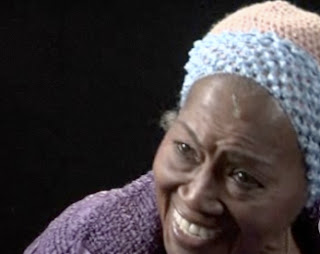 |
| “passing on the folk tradition” |
But the laugh continues. There’s more in there, I think. The most obvious, is the one maybe hinted at in the interviewer’s “theft” language used by : focusing on the different people involved in the tradition. Dylan, a white guy, and black sharecroppers in the south.
And she keeps laughing.
But, ironically, given the whole piece is about her, the interviewer doesn’t seem to be really listening to Odetta and the points she make. Even when she fixes him with a lazer-like look,
 |
| “It ain’t what you say it’s the way you say it” |
How can he miss that look? How much more explicit can she be, that the language you apply to musicking matters, that words like “stealing” do violence to the social realities of music?
But he can’t let go of the morally-inflected language, keeps harping on the word “steal.” So then she changes tactics and says “we professionals have stolen an awful lot from amateurs!”
SO AMAZING. She implicates herself in this system of power – she doesn’t claim ownership as a bohemian, a folkie or a black person. Instead she recognizes her specific status, someone who gets paid within a larger system. Not in a guilty way, but not in denial about the realities of music-making, even alongside the potential for communication, mobilization and healing.
Preach it, Odetta!
